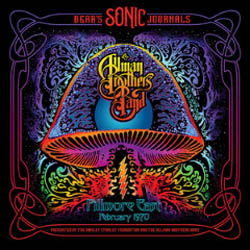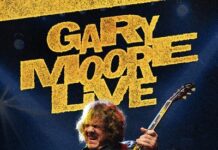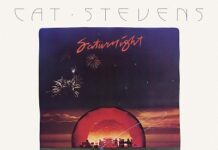What a difference a year makes!
At Fillmore East, the seminal 1971 ABB classic that gave proper validity to the southern rock genre and made the sextet superstars is our typical go-to lexicon for all things band-related. After all, that masterwork treated us to a hearty dose of the blues, the slide virtuosity of Duane “Skydog” Allman and the beautiful intensity of the group’s original tracks (I’m partial to the 23-minute version of “Whipping Post” myself).
But now, thanks to the foresight of the Grateful Dead’s soundman Owsley “Bear” Stanley, we get to take a terrific time machine trip back to the same venue one year earlier (1970). On Fillmore East February 1970, we can enjoy experiencing the ABB as a group with truly nothing to lose and an unabashed love for the blues heroes who influenced each member throughout their own respective musical destinies.
Capturing three dates of shows, this remarkably clear recording makes a terrific addition to the ABB discography. Starting with the earliest known live recording of Dickey Betts’ staple “In Memory of Elizabeth Reed,” the album only misses the mark once. Unfortunately, Gregg Allman can’t seem to muster the same guttural growl on “Whipping Post” he flawlessly executed countless times before and after. Though the band is in top form throughout the track, Gregg’s straightforward vocals seem uninspired in this one instance, which is unfortunate given this is arguably the Allmans’ greatest original track not only during this period, but their whole history as well.
But have no fear as we’re treated to some spirited takes on the blues here, including a raucous “Hoochie Coochie Man,” the groove-tastic “Trouble No More” and the plaintive “Outskirts of Town.” Ending with the superb half-hour long “Mountain Jam,” it’s nice to hear underrated ABB members Jaimoe, Butch Trucks and Berry Oakley all get to flex their instrumental chips apart from their musical brothers.
Though hard to compare to the enduring legacy of 1971’s At Fillmore East, Fillmore East February 1970, which was originally issued in 1997 on Grateful Dead Records, is still a true treasure find; one that captures a terrific moment in time before deaths, departures and occasional dourness work to stop the group fully in its tracks.
~ Ira Kantor




















